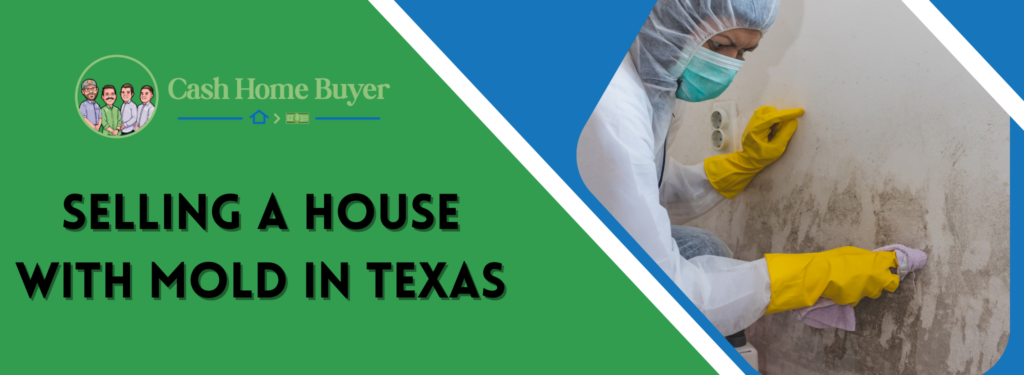
Understanding The Risks Of Selling A House With Mold In Texas
It can be difficult to sell a home in Texas with mold, particularly in a hot real estate market. Even though it seems like a fast way to dispose of the property, major risks must be considered.
The most obvious effect of mold is to reduce the resale value of your home by making it less desirable to prospective buyers. Your total profit might take a hit if this causes your listings to sit for longer and receive lower bids.
If the mold is not disclosed to buyers properly, there is also a risk of potential legal issues. If your Texas home has mold, you must be aware of the dangers and take measures to prevent them before listing it for sale.
The Impact Of Mold On Property Value In Texas
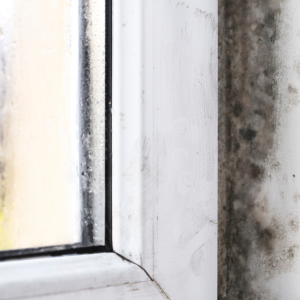
Mold can significantly impact a property’s value, particularly in a competitive housing market. Buyers are often hesitant to purchase homes that contain mold because it can pose health risks and be costly to remediate.
Furthermore, mold can cause structural damage if left untreated, raising concerns among potential buyers. This decreases demand for properties with mold, resulting in longer listing times and lower offers.
As a seller, you must address any mold issues before listing your Texas home for sale to maximize profits and attract potential buyers.
Legal Considerations For Selling A House With Mold In Texas
Selling a house with mold in Texas’ competitive housing market requires careful legal considerations. Potential buyers should be made aware of any known mold issues first and foremost.
Failure to do so can result in legal consequences, including a voided sale. Texas law requires sellers to disclose any material defects in their property, including mold.
Before listing their home for sale, homeowners must address mold remediation or repairs. This can prevent legal disputes and facilitate a smoother sales process.
To sell a house with mold, consult with a real estate attorney who understands Texas laws and regulations. Following these legal considerations allows homeowners to maximize profits while adhering to Texas’ legal requirements.
Required Disclosures For Selling A House With Mold In Texas

When selling a house in Texas with mold, it is critical to understand the disclosures that must be made. Texas law requires sellers to disclose any known mold issues in the property.
This means that if you are aware of mold in your home, you must notify potential buyers before they make an offer. Failure to disclose this information may result in legal consequences for the seller.
Texas requires a Mold Remediation Certificate from a licensed professional for mold areas larger than 25 square feet. Sellers must be transparent and provide all necessary information about mold in their homes, which can significantly impact the sale and negotiations in a competitive housing market.
Assessing The Severity Of Mold In Your Texas Home
In a competitive Texas housing market, mold can be a significant barrier to selling your home. Not only does it detract from the appearance and integrity of your home, but it can also raise health concerns for potential buyers.
Before you put your house on the market, you should determine the extent of the mold in your home. This includes identifying the type of mold present and determining its location throughout the property.
If mold is limited to small areas and easily remedied, it may not significantly affect the selling price, unlike a widespread infestation. If the mold has spread and caused significant damage, you may need professional remediation services before selling your home.
Assessing the severity of mold in your Texas home helps you maximize profits in a competitive market.
Common Types Of Mold Found In Texas Homes

Identifying the most common types of mold is essential if you plan to sell your home in Texas despite mold. Stachybotrys chartarum, more commonly known as black mold, is one of the most prevalent types.
Molds like these flourish in damp environments and can wreak havoc on people’s respiratory systems and overall health. Because of its ability to thrive on damp surfaces and trigger allergic reactions, Aspergillus is another type that is commonly found in homes in Texas.
Homeowners in Texas often find Cladosporium, another type of mold, in places where there has been water damage. This mold may exacerbate asthma and allergies.
Finally, Alternaria is an outdoor mold species that can invade houses through window or door seal cracks. To successfully sell your home in Texas’s competitive real estate market, it is important to be familiar with the most common types of molds so that you can detect and eliminate any mold problems.
The Role Of Professional Inspections When Selling A House With Mold In Texas
In Texas’s fiercely competitive real estate market, expert inspections are essential to optimizing profits when selling a home with mold. Mold is a severe problem that can drastically lower a property’s value and make it more difficult to sell.
Consequently, working with a reliable and skilled inspector is crucial to fully evaluate the extent of mold growth and any potential damage. This helps ascertain the house’s value and permits appropriate disclosure to prospective buyers, preventing future legal problems.
A professional inspection report can also guarantee buyers of a safe and healthy living environment and provide evidence of remediation efforts. This paperwork can give sellers an advantage over other properties with hidden mold issues in such a competitive market.
Remediation Options For Mold Removal In Texas
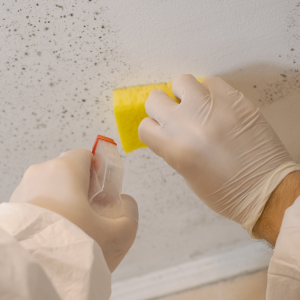
When selling a house in Texas that has mold, it is critical to consider mold remediation options. In today’s competitive housing market, it is critical to differentiate your property and appeal to potential buyers.
One option is to hire a professional mold remediation company to assess and remove all mold on the property. This can be a costly yet effective solution.
Another option is DIY remediation, which entails using store-bought products while taking safety precautions. However, this may not eliminate the mold, which could lead to additional problems down the road.
It’s also worth noting that Texas law requires sellers to disclose any known mold issues to potential buyers. Select the most appropriate remediation option for your situation to maximize profits and ensure a smooth selling process.
The Importance Of Properly Documenting Mold Remediation When Selling A House In Texas
When selling a house in Texas that has mold, it is critical to consider mold remediation options. The real estate market is very competitive, so you must do everything possible to make your home stand out.
Hiring a professional mold remediation service to inspect the property and remove the mold is one option. This can be a costly yet effective solution.
Using store-bought products with standard safety procedures constitutes another alternative to professional remediation. To be sure, this won’t solve all of your mold problems and might even cause some new ones.
As you know, the law in Texas requires sellers to inform buyers about any mold problems they may have. Choose the right remediation option to make the most money and ensure a smooth sale.
Addressing Health Concerns When Selling A House With Mold In Texas
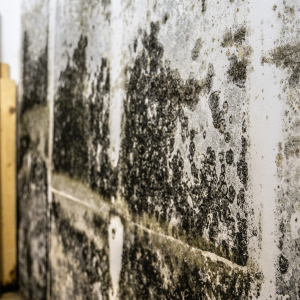
Selling a Texas house with mold requires addressing buyers’ health concerns. Untreated mold can pose serious health risks.
Sellers must disclose mold in their homes. Take the necessary steps to remediate the mold and make the house safe for buyers.
Hiring a professional mold remediation company and documenting the process may be necessary. To assure buyers of the house’s condition, consider a mold inspection report from a certified inspector.
Addressing mold health concerns in a competitive Texas housing market can boost your chances of selling.
Tips For Marketing And Attracting Buyers When Selling A House With Mold In Texas
When selling a home with mold in Texas, a solid marketing strategy is critical. One tip for attracting buyers is highlighting the property’s potential by emphasizing its distinguishing features and location.
Furthermore, using high-quality photos and virtual tours can help showcase the property in a more appealing light despite the presence of mold. It’s also critical to be open about the mold problem and provide documentation for any remediation efforts.
This can help build trust with potential buyers by demonstrating that you are handling the problem. Using social media platforms and contacting local real estate agents can also help raise awareness about your property and attract potential buyers.
Overall, having a strong marketing strategy and being open about the mold problem can help maximize profits when selling a moldy house in Texas’ competitive housing market.
How To Negotiate The Sale Price When Selling A House With Mold In Texas
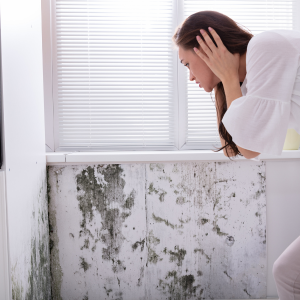
Moldy houses are hard to sell in Texas, especially in a competitive housing market. Despite this issue, there are ways to maximize profits.
Sale price negotiation is crucial. To do this, you must understand the extent of the mold and its potential impact on your home’s value.
Professional mold inspections provide this information. With this knowledge, you can work with your real estate agent to set a fair asking price for your home.
Mold should also be disclosed to buyers during negotiations. This will make you appear proactive and honest, which can build trust and increase the likelihood of a successful sale price agreement.
Potential Obstacles And Solutions For Selling A House With Mold In Texas
While trying to sell a house in Texas with mold, homeowners may run into a number of problems. Customers don’t like mold, making it hard to get potential buyers. This is the first and most obvious problem.
Additionally, getting rid of mold can be expensive and take a lot of time, which can reduce the amount of money that could be made from selling the house. Fortunately, these problems can be fixed.
Professional mold removal companies can help ease buyer concerns by handling the problem and providing a remediation certificate. Competing pricing the house and being honest about the mold can also help it sell faster.
Additionally, it is important to work with a real estate agent who knows how to market the property well and has sold homes in Texas that had mold issues before. In Texas’s competitive housing market, selling a house with mold is possible as long as the seller is proactive and looks at any problems head-on.
Insurance Considerations And Coverage For Selling A House With Mold In Texas
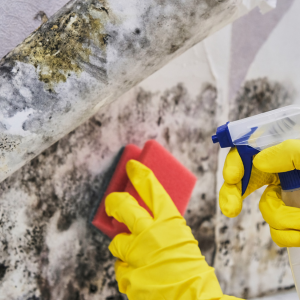
If you are selling a house in Texas with mold, you should consider how the insurance will cover it and what that means. Mold can have a big effect on a home’s value and ability to sell, so it is very important to have the right insurance.
Homeowners must check their insurance policies to see if mold problems are covered. If not, they may need to buy extra insurance or look for mold-specific insurance.
Also, you should tell potential buyers about any mold problems you know about and show proof of your efforts to fix them. Not doing so could lead to legal problems and make it harder to sell the house.
Finally, if you want to make the most money in a competitive housing market, you need to be aware of and deal with the insurance issues that arise when you try to sell a house with mold.
Preparing Your Home For Showings When Dealing With Mold Issues In Texas
To maximize profits when selling a mold-infested house in Texas, you must prepare your home for showings. One of the first steps is to address the mold issue.
This may include hiring a professional mold remediation company to clean and remove any visible mold. Furthermore, you may need to make repairs or renovations to address any underlying issues that caused the mold growth.
It is also critical to thoroughly clean and deodorize your home before showings, as mold can emit a musty odor. Finally, notify potential buyers of any known mold issues and provide documentation of any remediation efforts.
By following these steps, you can ensure that your home is presented in the best possible light and stands out in a competitive housing market, even if it has mold issues.
Working With Experienced Real Estate Agents To Sell A House With Mold In Texas
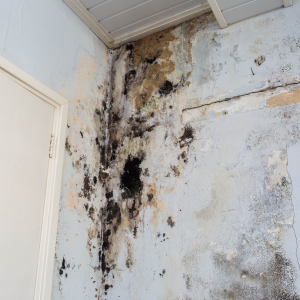
If you want to sell a house in Texas with mold on it, you need to work with experienced real estate agents. These experts know how to handle tricky situations that can be difficult for first-time sellers.
They can help you determine your home’s true value, create a marketing plan, and negotiate with buyers. Agents with extensive experience also know the state laws and rules regarding mold disclosure, which protects them from being held responsible for any problems arising after the sale.
Working with an experienced real estate agent can help you make the most money and make selling a Texas house with mold much easier and less stressful.
Navigating The Closing Process When Selling A House With Mold In Texas
Selling a house with mold in Texas can be difficult, especially in a competitive housing market. However, you can still increase your profits by understanding the closing process and taking specific steps.
First and foremost, potential buyers should be informed about the presence of mold and provided with any relevant documentation or reports. This transparency will foster trust and prevent surprises during the closing process.
Additionally, it is critical to collaborate closely with a real estate agent who has dealt with mold in properties. They can help you navigate negotiations and ensure that the terms of the sale are fair to both parties.
Furthermore, before listing your home, consider hiring a professional remediation company to remove or mitigate mold issues. This demonstrates to potential buyers that you are proactive and have taken action to address the issue.
Overall, navigating the closing process when selling a house with mold in Texas necessitates transparency, communication, and collaboration with experienced professionals to ensure a successful and profitable sale.
Do You Have To Disclose Mold When Selling A House In Texas?
When it comes to selling your Texas home with mold in a highly competitive housing market, one of the most pressing questions is whether you must disclose the presence of mold. While Texas has no specific laws requiring sellers to disclose mold, it is still strongly advised for ethical and legal reasons.
Failure to disclose mold can lead to legal action by the buyer and harm your reputation as a seller. Not only that, but buyers are becoming more aware of the potential health risks associated with mold, making it an important factor in their decision-making process.
When listing their property, sellers must be open and honest about any mold issues to maximize profits and attract serious buyers.
Can A House Be Sold If It Has Mold?
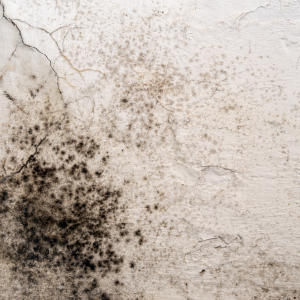
If you’re trying to sell your Texas home in a competitive housing market, mold can significantly impact your chances of success. While many buyers will be put off by buying a home with mold, there are still ways to maximize your profits and sell your house.
The key is to address the mold issue head-on and avoid scaring away potential buyers. A mold-infested house can still be sold in a competitive market with proper remediation and disclosure.
Following these tips will allow you to confidently navigate the selling process and ultimately secure a successful sale for your Texas home.
How Much Does Mold Affect Home Value?
Mold significantly impacts the value of your Texas home in a competitive housing market. It is a major red flag for prospective buyers, poses health risks, and can be costly to repair.
This makes it critical for homeowners to address mold issues before putting their homes on the market. Failure to do so may result in lower offers and longer days on the market, reducing your chances of maximizing profits.
To successfully sell a house with mold, you must first understand how much this issue can affect the property’s overall value and then take proactive steps to mitigate its impact.
Does Mold Affect Home Appraisal?
When selling your Texas home in a competitive housing market, the presence of mold can significantly impact your profits. Many homeowners may wonder if mold affects home value. The answer is yes.
Mold can significantly reduce the value of your home, making it less appealing to potential buyers. A home appraisal considers the property’s overall condition, and mold can be a big red flag for appraisers.
To maximize your profits when selling a house with mold, you must address and remediate any mold issues before putting your home on the market. Failure to do so may result in a lower appraisal and, consequently, a lower sale price for your property.
This information applies to Texas and its cities, including Austin, Houston, El Paso, and more. Please call us at (214) 617-1510 for assistance or if you have questions. You can also visit our website at A Cash Home Buyer for more details.
Additional Resources for Texas Homeowners
| [ | |||||
| “ | ] | “ | ] |


